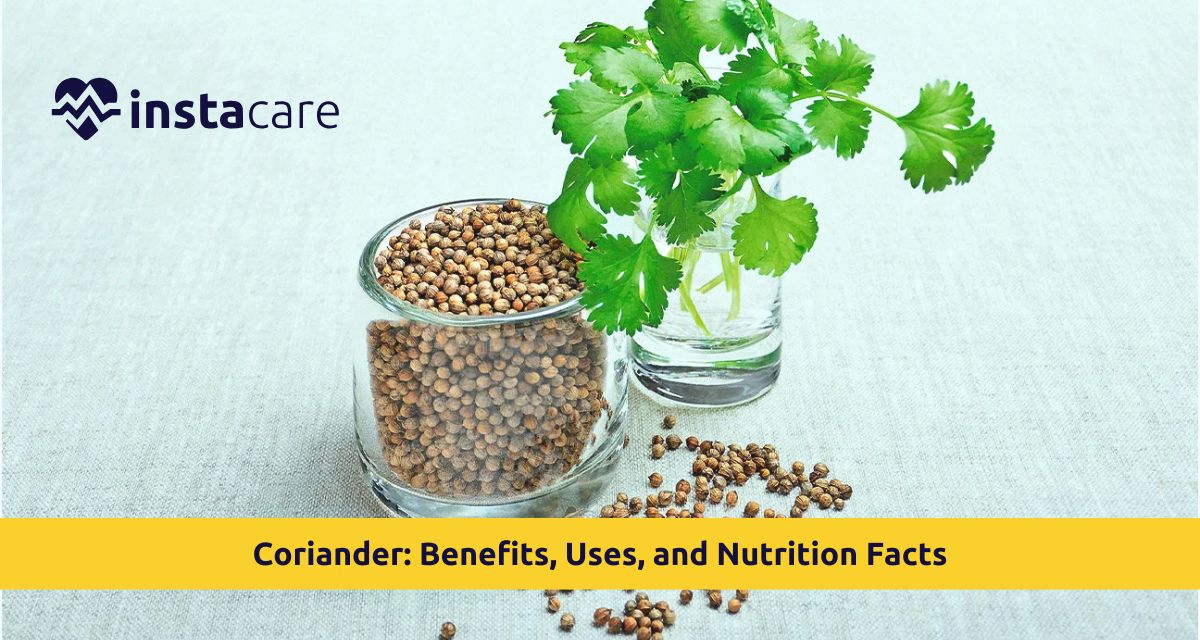What is Coriander?
Coriander, or cilantro as it is popularly referred to outside Great Britain, is one herb that has been around for many years in the culinary and medicinal domain. This herb certainly carries a flavor and aroma unique to itself, and it's often found in a wide spectrum of cuisines such as that of India or in the Middle East and Latin America.
Aside from its culinary benefits, it has also been said to have numerous health benefits, making it a pantry must-have. So this paper addressed the benefits of coriander, the usages, and nutritional facts about the herb to record this amazing herb exhaustively.
Nutritional Facts of Coriander
Low Calorie Herb
This herb boasts an amazing taste, accompanied by a remarkably nutritious profile. It has low calories: 23 per 100 grams, so one can sprinkle it on just about any food without adding significantly to the caloric load.
Nutrition Facts
- Coriander generally comes across as a good source of vitamin A, vitamin C, and vitamin K.
- Vitamin A is for vision and immune function, C for antioxidant activities in the immune process and skin health, and K for blood coagulation and the maintenance of bone structure.
- Coriander is also a fair source of sky minerals, such as potassium and magnesium, which would, among other roles, help in muscle contraction and nerve conduction.
Health Benefits of Coriander
Properties of Antioxidants
Coriander contains many antioxidants which are helpful in preventing oxidative damage within our body. Oxidative stress is a cause of chronic diseases like heart disease, diabetes, and cancer. The antioxidants in the coriander will engulf all those free radicals that have been described as causing inflammation in the body leading to disease.
Encourages Digestion
Known for its carminative qualities, coriander enhances digestion and thus, removes gas and flatulence. Such a spice would trigger the release of digestive enzymes through which food can be digested properly.
Improves the Health of the Heart
Another great advantage one gets from taking coriander is healthy heart benefits. As studies show, coriander is said to decrease bad cholesterol (LDL) levels and increase good cholesterol (HDL) levels. This is especially beneficial to those in danger of heart disease. Another quality of coriander is anti-inflammatory, which helps in circulation and in lowering blood pressure by promoting cardiovascular health.
Antimicrobial Action
Coriander bears some antimicrobial properties that could be very useful in the prevention of diseases caused either by bacteria or fungi. These would especially apply to food-borne illnesses while using coriander in the capacities of garnish or spice. The herb could also serve as quite a good natural preservative in food-improving shelf life against spoilage.
Blood Sugar Regulation
Perhaps the other great effect that coriander has to do with blood sugar regulation. Coriander, according to certain studies, reduces sugar levels and may enhance insulin sensitivity, which might be very helpful to diabetic patients since it can protect them from having both very high and very low blood sugar levels throughout the day.
Various Uses of Coriander
Cooking with Fresh Leaves
Cilantro finds itself in many foods, making it a useful yet versatile herb. Use of the fresh leaves is one such application, heavy in salads and salsas and would do equally well as a garnish for a host of other foods.
These bright, citrusy, fresh leaves would go well with just about everything: guacamole, curries, and soups, to the last bit of finely chopped leaves dashed on top just before serving.
Ground Seeds of Coriander are Used for Flavour
Another great form of cilantro is ground seeds. The seeds' warm aromatic flavor enhances meat dishes, stews, and spice mixtures. The flavoring is often added to curries and meat marinades as well, complementing the overall flavor with the rest that goes into it. The seeds can also be toasted first, which serves to enhance the flavor even more when ground to a powder.
Used in Essential Oil and Tea
Coriander essential oil is extracted from the steam distillation of seeds and leaves of the plant. This oil is used for calming and soothing through
aromatherapy, allowing the fragrance to seep into the air through the aromatherapist or using it in the bath for a relaxing experience.
And it comes down again to tea, steeped in lore as a digestive aid, made from boiling crushed coriander seeds into hot water. In other words, it is a soothing agent that smells wonderful.
How to Cultivate Coriander at Home?
- An easy but rewarding way to plant coriander in the home would be germinating cilantro seeds in a great herb garden.
- The seeds should be deposited directly in well-draining soils and place a container as bright as possible.
- Considering that the plants prefer a cool temperature, spring or autumn is the most favorable time for planting.
- It irrigates regularly; keeping moist soil but not soggy.
Conclusion
One culinary spice that has multiple health benefits and therefore qualifies as one of the few spices is coriander. So it is excellent to incorporate that nutritious and versatile spice in any dish as it will help the person's health too. Fresh leaves, ground seeds, or essential oil: all spices brought to the kitchen add flavor and health to the dishes. It has proved itself a super addition to the kitchen with its advantages for digestion, heart health, and overall nutrition. So use this herb in cooking and reap benefits.
Please book an appointment with the
best Nutritionist in Lahore, Karachi, Islamabad, and all major cities of Pakistan through
InstaCare, or call our helpline at 03171777509 to find the verified doctor for your disease.











